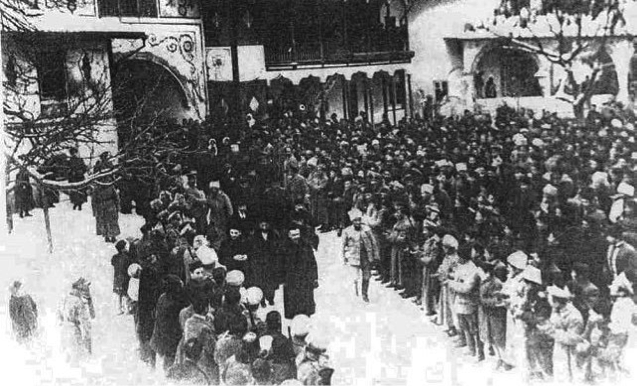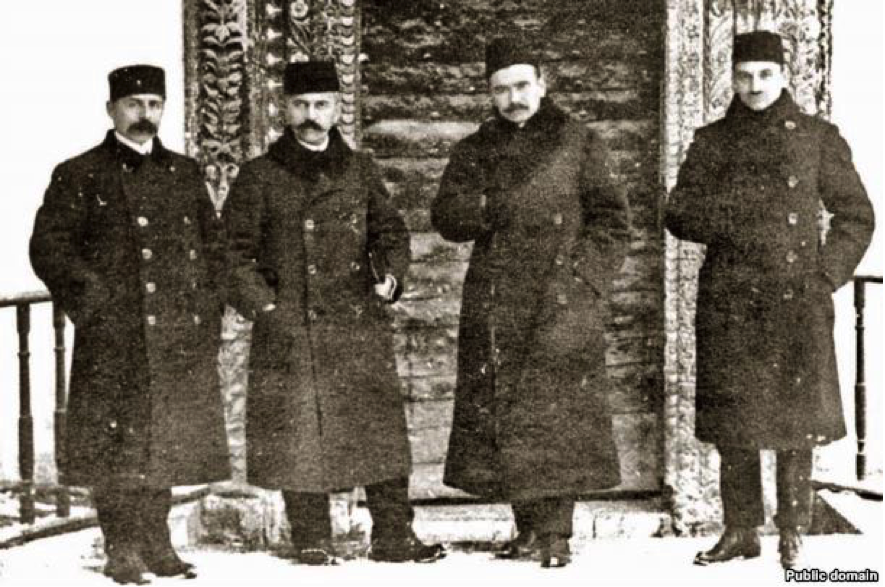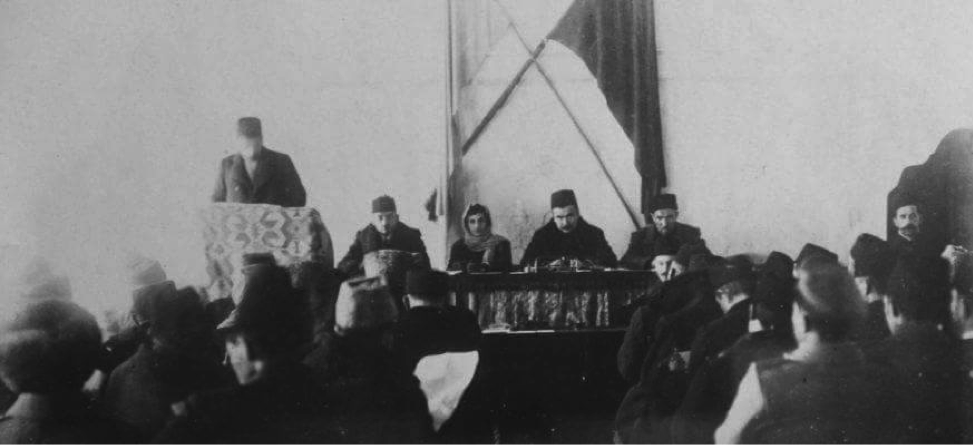100 years Anniversary of the Qurultay of the Crimean Tatar people
QURULTAY OF THE CRIMEAN TATAR PEOPLE
Having been occupied by Russia since 1783, the Crimean Tatar people proclaimed its freedom in 1917 by calling a national assembly. Inspired by history, this assembly was called the Qurultay and it represented the Crimean Tatar people, who finally won its freedom after 134 years of occupation.
Road to Qurultay
Following the 1917 Revolution, which brought the end to the Russian Empire, captive nations in Russia attempted to establish their own national states and determine their own destiny. The Crimean Tatars began taking steps to establish a national state in Crimea by taking advantage of the turmoil in Russia. At the beginning, under the presidency of Seyit Celil Hattat, Deputies Congress of Crimean Muslims was held in Simferopol on April 7, 1917. The decision to establish the Central Executive Committee of the Crimean Muslims was made at this Congress. Numan Çelebi Cihan was elected as the chairman of this committee, as well as Mufti of Tavrida and Western Russia and Chairman of the Ulama Administration. The Executive Commitee consisted of 45 elected members.
The second Deputies Congress of Crimean Muslims was held in Simferopol on 14-15 October, 1917. 20 of 200 representatives were women. During the congress, the question of establishing The Qurultay was discussed for the first time. The election of the Qurultay was planned for November 30, 1917 and the Qurultay was expected to begin its work on December 7, 1917.
On November 30, 1917, first elections to the Qurultay were held. All men and women over the age of 20 were granted the right to vote. Of 76 appointed deputies, 5 were women.
Because of heavy snow the Qurultay finally began its work 2 days later than expected on December 9, 1917. The Crimean Tatar people gathered in the national assembly in Hansaray, in the city of Bahçesaray, the capital of the Crimean Khanate. The Qurultay’s first order of business was preparation of the first Crimean Tatar Constitution as well as issues pertaining to the Crimean Tatar national government.
Democratic Republic of Crimea
On December 26, 1917, the Democratic Republic of Crimea was proclaimed and the Qurultay adopted a new Constitution. With the formation of the Parliament, it was decided to elect the prime minister of the Chamber of Deputies by secret ballot. The prime minister would then form government and receive vote of confidence from the parliament.
Because of the vote of the Chamber of Deputies, the Chairman of the Executive Committee of the Crimean Muslims and the Crimean Grand Mufti Numan Çelebi Cihan was elected as the first Prime Minister of the Democratic Republic of Crimea. After the formation of the National Government he received majority of the votes and thus passed the confidence vote.
National Government
Prime Minister and Minister of Justice – Çelebi Cihan Efendi
Minister of Foreign Affairs and War – Cafer Seydahmet Efendi
Minister of Religious Affairs – Ahmet Şükrü Efendi
Minister of Education – İbrahim Özenbaşlı Efendi
Minister of Finance and Foundation – Seytcelil Hattat Efendi
On December 27, 1917, the government was transferred to Simferopol (Aqmescit). On December 31, 1917 the newly formed government has informed Crimean citizens in both Turkish and Russian that the national government of the Crimean Tatar has began its work.
The goal of Crimean Tatars was to establish an independent state and adopt a new constitution, which would guarantee basic rights to all groups residing in Crimea. However, the national government of Crimean never had a chance to fulfill its dream because of the Bolshevik offensive in Crimea. Soon after capturing Simferopol, on January 27, 1918 the Bolsheviks murdered the head of the National government Numan Çelebi Cihan.
BOLSHEVIK INVASION AND TURMOIL IN CRIMEA
With the Treaty of Brest-Litovsk signed on February 9, 1918, Germany recognized the independence of Ukraine and, in accordance with the treaty, began invading its territory in order to clear Ukraine from the Bolsheviks. On March 21, the occupation was decided to be extended to the Crimea, and on April 19, German troops began to arrive to Crimea. The resistance of the Bolshevik forces was broken and at the end of April Crimea was under German administration. Under the German military administration, the National Qurultay of the Crimean Tatars was able to convene again on 8 May 1918. In June 1918, Crimean government was established under the protection of German military administration. Despite the presence of the Crimean Tatars in this government, the Germans had preferred to establish a mixed government. While an ethnic Lithuanian Tatar Süleyman Sülkevic was the head of the government, the government included Russians and Germans in favor of the Bolsheviks. At the same time, the First World War was ongoing.
Following the withdrawal of Germany from the WW I, Sulkevic’s government, which relied heavily on the German military power, resigned on 14 November 1918.
After multiple battles, eventually the Bolsheviks took over the administration in Crimea.
Like many other nations, the Crimean Tatars have been deprived of their rights as a consequence of the Bolshevik invasion.
IMPORTANCE OF THE QURULTAY
In 2017 we are celebrating the 100th anniversary of the Qurultay of the Crimean Tatar People.
It is more important today than ever to understand the vision our leaders had and the reasons why they were prepared to sacrifice everything to fulfill their dream. The National Government, which implemented the resolutions of the first Qurultay, serves as a reminder of courage, determination and principled position.
It is very symbolic that the second Qurultay of the Crimean Tatar People, which assembled following the return of Crimean Tatars from exile to its homeland in 1991, proclaimed and adopted decision, similar to those proclaimed in 1917. Despite Soviet occupation, the Crimean Tatars did not abandon their dream to live in peace and prosperity.
It is an important duty for our people to pass this story to the future generations in order to immortalize the fundamentals of our struggle.



